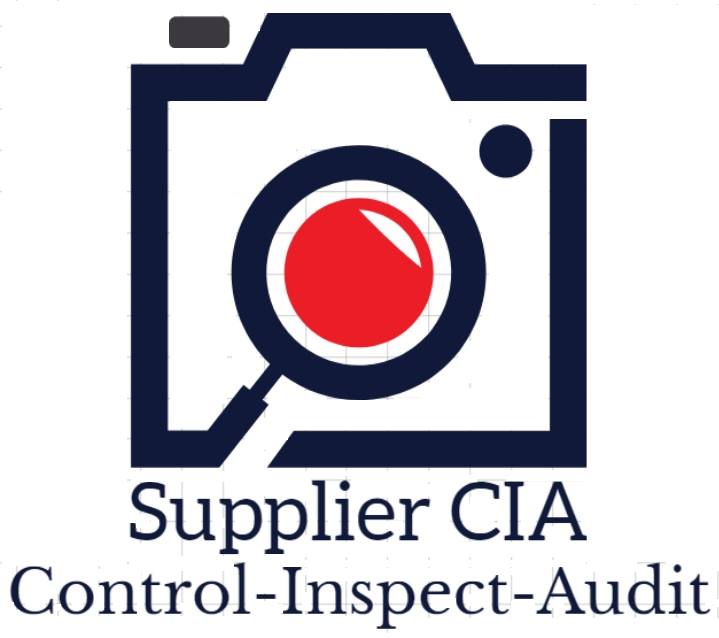LOOKING FOR SUPPLIERS

1. Initial Search for Suppliers; directories, trade-show directories, internet, industrial commissions will be a good asset for research. It saves you time during subsequent short-listing. At this point, you can already orient your search for suppliers of the right size, capabilities, etc.
2. Not all good suppliers have English websites, you may have a translator. However, be careful; this person should not get a commission from the factories in your back.
3. Existing (good) suppliers may be able to help expand your supplier network in non-competing products. Be aware of the danger of commissions or inflated prices.
4. If there is any IP involved, register it in Turkey before you approach anybody. Consider registering your IP for categories similar to the one you manufacture.
SHORTLISTING SUPPLIERS
5. Approach them first with an introductory email presenting yourself, your company and detailing as much as possible the product you are looking after. If they do not answer fast (1-3 days) move on, they will give you trouble in the future. Probably true most of the time.
6. If you have a good number of suppliers to choose from, create a “pre-selection system” that helps you shortlist: level of response to your introductory e-mail response, telephone check (do they exist?), factory address provided, factory license, any certification your business requires, quality certifications. Customer references, main export market, level of apparent interest, number of irrelevant questions asked about the product.
7. Ensure you are not dealing with the middle man. Visit the factory! Not enough! They might bring you to a factory they don’t own. The only way is to pay for a background accounting check. If you can’t visit the factory, get an Inspection Company to do it for you. It is not that expensive.
NEGOTIATING WITH YOUR SELECTED SUPPLIERS
8. If you are not a fluent Turkish speaker, bring a native speaker to the negotiation- he/she will be valuable support. It might not be necessary if an experienced salesperson/merchandiser can speak good English.
9. Understand perfectly the production process. The best way to do business in Turkey is face-to-face” Technology is great, but I do not think it is the way manufacturers are wired to work. Make them recap the agreements, do not assume they understood just because you feel you were clear enough”
10. Be very clear on who is going to be making decisions.
11. “I can’t” is not in suppliers’ vocabulary, so be wary if you get silence for an answer.
12. Give realistic purchase estimates. If you promise 10 more times than you are planning to buy, they will cut corners to meet their profit so it will hit you back with poor quality. Most suppliers work on small margins.
13. Expect long negotiations: even points that have already been agreed will be raised again in the future.
14. Pricing: Do not get obsessed with the cheapest deal. Quality has a price and you should also consider that. “If you pay too much, you are not sure what you will get. If you pay too little, you are sure you will get substandard goods!”.
15. Learn about your supplier’s cost structure (How much goes into labor, materials cost…). Track commodity prices used in your products.
16 . If your IP is involved, make sure they agree to sign a good non-disclosure agreement, with non-use / non-circumvention provisions.
17. Contracting: It will be a good use of your money to get a Turkey knowledgeable lawyer to draft them (so that the terms are enforceable and it covers all the points you need to cover- IP, stocks, product quality, product specifications, penalties, etc.
18. Ensure they have the machinery & capability to produce your product. Ask them to produce a few samples in front of you, even if they don’t match your exact specifications. Provided they have the right components at that moment, and it does not require them to stop a whole production line.
PRODUCTION & SHIPMENT
19. Visit the factory during product development. It will speed the process, as nobody will tell you on the phone when they’ve got stuck with something (especially if the product is technically sophisticated). Visit the factory during production as well, for quality control. If you can’t visit the factory send an inspection company or somebody you trust (and is qualified for the job). Better work with professionals. A day of third-party inspection is not expensive.
20. Quality Control: Always, even with well-established suppliers. Don’t pay till you are sure all the product is in good condition (make sure the contract is drafted that way). The inspection can be less in-depth and/or only after production. If the quantities are small, you might want to skip some lots from time to time, but the supplier should know about it at the last moment.
21. Always be ready with backup options- you would be surprised about how many last minutes surprises happen. For customized products, do the development job with 2 factories, and to decide which one gets the order after that step. If the lucky one eventually gets stuck, the backup one can get up to speed immediately.
22. Expect Delays in your Supply Schedule ( national holidays…) Importers should take AT LEAST 2 weeks of safety in their schedule. For new suppliers or new products, at least 1 month.
23. “Problems don’t finish after production. Supervise Logistic Paperwork! There are often mistakes that will get your shipment stuck.
ON-GOING RELATIONSHIP
24. Payment Terms: Some buyers feel that, once you build the business relationship, things get easier. (ex. Not requiring advanced payments). It changes according to buyer and supplier status.
25. Get rid of unreliable suppliers A.S.A.P. If they trick you once, it will happen again. Switch to new ones for the next order, even if it consumes a lot of your time. But never say never again–you might start working with them again, especially if they get better organized or change a few key managers.
26. Take care of good suppliers, they are not easy to find. Look for a win-win when problems come up. Suppliers evaluate and compare their customers too. “Good customers” are necessary for suppliers’ long-term profit and development goals. It means you should inquire about their interests, and adapt your way of working to accommodate them (within reasonable limits.
27. “Renegotiating conditions” is quite common. Your supplier sees the contract as the “beginning” of the relationship. If you know better commodity prices & suppliers’ cost structure, you will be able to assess if there is a fair reason to give in (hopefully in future productions).

